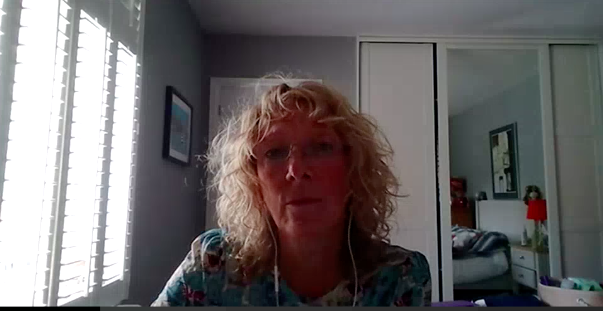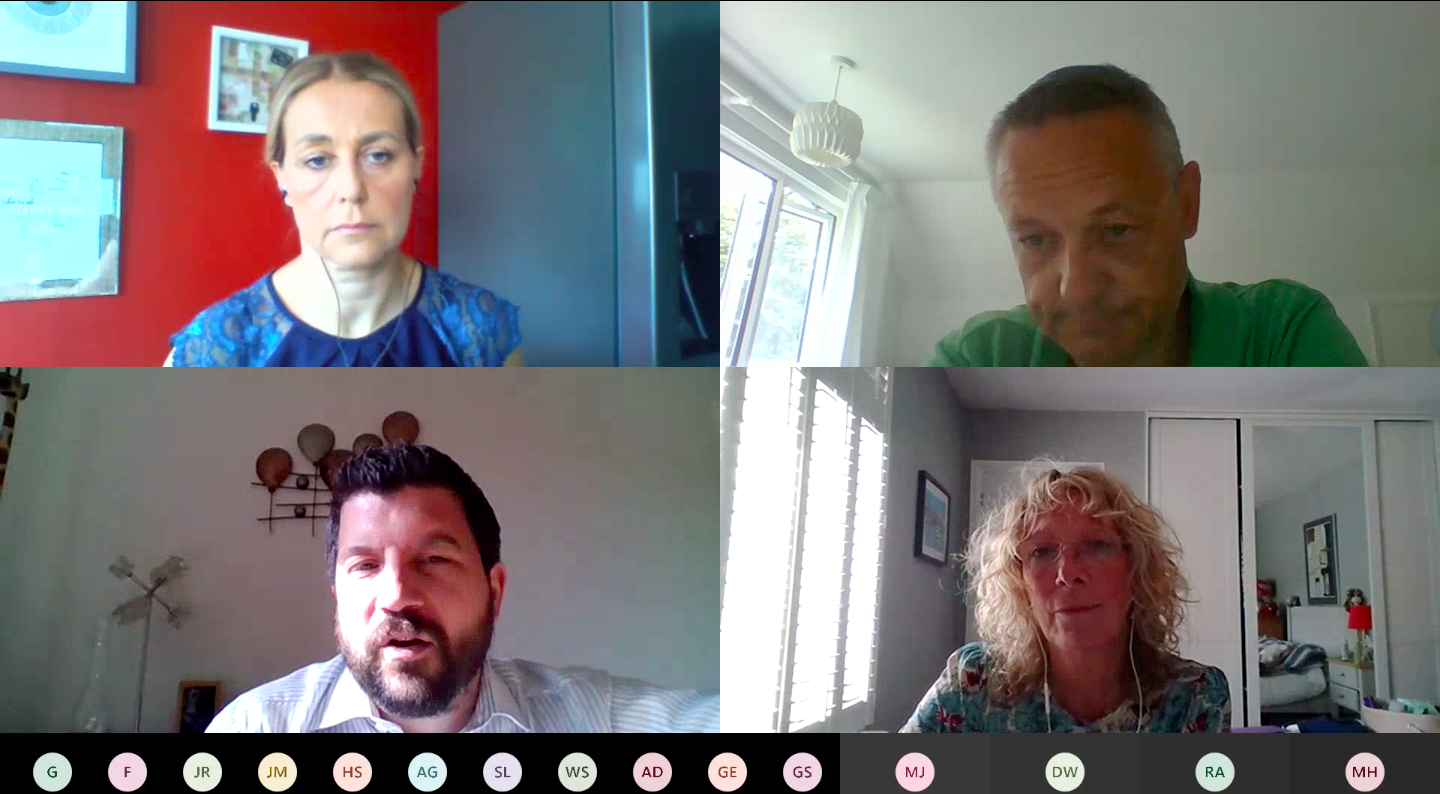Webinar Roundup: HR, People & Recruitment during COVID-19 with Jo Faulkner
After the success of our last HR, People and Recruitment during COVID-19 digital roundtable, we realised that we’d only scratched the surface of this broad and interesting topic. To continue delving into both the positive and negative impacts the coronavirus pandemic has had on the business landscape, we decided that another digital roundtable session was needed.
For this second instalment of our digital roundtable series, we enlisted the help of Senior Change Leader, Jo Faulkner who has led numerous successful, large-scale change programmes during her career. As lockdown restrictions gradually lift and businesses start preparing to return to a sense of normality, we felt there was no time like the present for us to call upon Jo’s expertise to discuss the subject of recruitment and returning to work from a change management perspective.
Jo kicked off the roundtable by discussing how over the past few months, the way that we interact and work with each other has changed significantly. She explained that none of us really like change, particularly when it’s imposed on us, but due to the coronavirus pandemic, this change to the way we work was unavoidable. Impromptu meetings at the water cooler were replaced with scheduled zoom calls and the office desk is now the dining room table practically overnight.
This is a huge change that ordinarily would have taken potentially months or years of planning and countless meetings to achieve successfully. But many organisations managed to change the physical aspect of how they work in just a matter of weeks.

The impact of change
Jo went on to discuss the emotional aspect of change and how we can expect a rollercoaster of change as we begin to come out of lockdown. While lockdowns restrictions are beginning to ease and businesses start to prepare for their employees to return to the workplace, Jo predicts that we still have a bumpy ride ahead of us, as employee’s emotions go through highs and lows over the coming months.
She explained that “a lack of uncertainty can be a major stressor when it comes to change. Many people are still going through an element of confusion after having to say good-bye to their colleagues, routine and meetings almost overnight. There will also be feelings of concerns about returning to work or whether they will have a job to go back to at all.”
Jo then opened up the roundtable to hear more about the attendee’s experiences of working from home over the last three months. The response was predominantly positive, with many of the attendees saying that, despite missing interacting with their colleagues and experiencing a loss in concentration, they have found adapting to the change relatively easy. However, one attendee admitted that even though he was used to it before lockdown, he is now finding that working from home five days a week with lessened interaction with his colleagues is too much.
Jo added that employers who are considering making their employees work from home full time going forward will need to consider how they can maintain a sense of collaboration and engagement amongst their team. If they don’t, they could risk losing their company culture altogether.
Re-build and re-focus
As we gradually move out of lockdown, organisations are now considering how they can build organisational robustness and resilience in order to keep moving forward. Jo predicted that hybrid organisational structures, such as dispersed workforces, are likely to be introduced over the next few months to help organisations build confidence, encourage collaboration and mitigate health risks and loss of company culture.
However, Jo went on to explain that if they want to successfully manage this changing environment, organisations will need to ensure their leadership teams are better equipped to manage a remote workforce. Due to the unanticipated pandemic, many organisations were unable to provide the necessary training to their managers on how to do this effectively, which has left many feeling underprepared. Jo added that a re-focus on how they can make their employees feel valued regardless of whether they work in the office or at home will also be required for prosperous hybrid workforces.

Employee retention and attraction
When discussing how remote working could impact an organisation’s employers attraction and retention strategies, Jo wanted to hear what insights the session’s attendees had gained. One of the attendees explained that every candidate she had interviewed recently had reacted positively to her organisation’s role being made flexible and remote because it allowed them to achieve a better work/life balance. She felt that by offering this working style, her organisation would quickly see an increase in their retention and satisfaction levels and they would be able to take advantage of a wider talent pool.
In addition to gaining access to potential candidates in locations further afield, Jo also added that remote working could also help to increase diversity within an organisation. She gave the example that by allowing people to work from home, they are opening the doors to talented people with physical limitations, who may be unable to commute or work in a traditional office setting.
Another attendee discussed how she had started working at her organisation not long before the lockdown was implemented and because of this, her onboarding and training have been predominantly delivered via PowerPoint presentations. She felt that while this might have been effective in a team environment, her organisation needs to start creating more interactive and engaging forms of training going forward for remote workers or risk losing them to their competitors.
Challenges of managing a dispersed workforce
While it’s likely that there will be an increase in people wanting to work from home more often, Jo also acknowledged that there will be others who want to go back to the office for social interactions and human incentivisation to make them more productive. However, without the right training and skill sets, leadership teams will understandably be feeling overwhelmed and unable to manage a potentially dispersed workforce effectively.
Jo asked the attendees to share what challenges they thought their leadership teams could face as they adapt to managing remote employees more often. One attendee said “I think trust equals autonomy and heightened productivity. We need to adapt our techniques to give our managers the skills and confidence they need to manage and trust their teams to work remotely. I think this can be achieved by setting clear objectives and measuring employees not on the hours they work, but their output and successes.”
Jo added onto the attendee's point that negotiating working hours could be a big challenge for leadership teams, as a traditional 9-5 hours may no longer be suitable for everyone. If employees are left to work to their own schedule with no core working hours in place, some organisations could experience major work holdups and frustration amongst teams as a result. Jo explained that to avoid this, organisations need to have more emphasis on stabilising what working from home looks like, from both a work and relationship-building perspective.
Now that organisations have proven that they can operate a remote workforce from a physical and technical standpoint, it can be tempting for them to continue on without considering the everchanging emotional aspect that comes with it. There may still be a bumpy road ahead, but those who equip their leaders on how to pull their teams together and build relationships will find the smooth ground far quicker than those who don’t.
7th July
Events
Related insight
Related News
Looking to
transform?
Quicklinks

Address
Deltra Group
52-54 Gracechurch St
London
EC3V 0EH
Contact
+44 (0)207 375 9500
info@deltragroup.com



